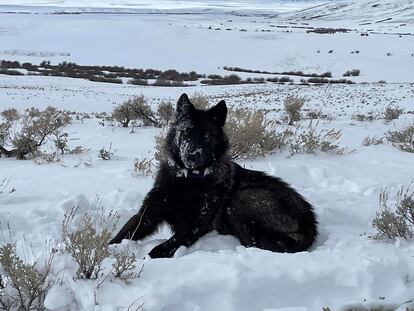Colorado cattle industry sues over wolf reintroduction on the cusp of the animals’ release
The predators’ release, voted for in a 2020 ballot measure, has already stirred controversy and sharpened divides between rural and urban residents

Just weeks before the deadline for Colorado to begin reintroducing gray wolves under a voter-approved initiative, representatives of the cattle industry association are suing state and federal agencies in litigation that could delay the predators’ release.
The Gunnison County Stockgrowers’ Association and Colorado Cattlemen’s Association say in the lawsuit filed Monday that U.S. Fish and Wildlife failed to adequately review the environmental effects of the plan to reintroduce up to 50 wolves over the next several years.
The predators’ release in Colorado, voted for in a 2020 ballot measure, has already stirred controversy and sharpened divides between rural and urban residents. City dwellers largely voted for the measures that would most affect rural areas, where wolves can prey on livestock that help drive local economies.
U.S. Fish and Wildlife did perform an environmental review in part on what is called the 10(j) rule, which would permit the killing of wolves in Colorado under certain scenarios even though the animals are considered an endangered species.
Still, the lawsuit alleges that review doesn’t satisfy the federal environmental law and asks that a judge require U.S. Fish and Wildlife to perform another analysis.
“Impacts of wolf reintroduction, as would any other action of this magnitude, need to be properly reviewed to avoid unintended negative consequences to the natural environment, wildlife, and people of the impacted communities,” said Andy Spann, a fifth-generation rancher and president of the Gunnison County Stockgrowers Association.
“We believe that much of our input, and that of many others across western Colorado, was diminished,” Spann said.
U.S. Fish and Wildlife and Colorado Parks and Wildlife did not immediately respond to a request for comment.
An analysis of state and federal data by The Associated Press found that, in 2022, gray wolves attacked domesticated animals hundreds of times across 10 states in the contiguous U.S., including Colorado.
Data showed that attacks killed or injured at least 425 cattle and calves, 313 sheep and lambs, 40 dogs, 10 chickens, five horses and four goats.
While those losses can be devastating to individual ranchers or pet owners, the industry-wide impact is minimal. The number of cattle killed or injured in the documented cases equals 0.002% of herds in the affected states. according to a comparison of depredation data with state livestock inventories.
Once a case of livestock killed is confirmed to be from wolves, ranchers can be reimbursed by the state for their loss. But ranchers say merely financial compensation doesn’t assuage the problem.
Gray wolves were exterminated across most of the U.S. by the 1930s under government-sponsored poisoning and trapping campaigns. They received endangered-species protections in 1975, when there were about 1,000 left, in northern Minnesota.
Since then, there has been no turning back for other states where gray wolves have become reestablished. An estimated 7,500 wolves in about 1,400 packs now roam parts of the contiguous U.S.
Sign up for our weekly newsletter to get more English-language news coverage from EL PAÍS USA Edition
Tu suscripción se está usando en otro dispositivo
¿Quieres añadir otro usuario a tu suscripción?
Si continúas leyendo en este dispositivo, no se podrá leer en el otro.
FlechaTu suscripción se está usando en otro dispositivo y solo puedes acceder a EL PAÍS desde un dispositivo a la vez.
Si quieres compartir tu cuenta, cambia tu suscripción a la modalidad Premium, así podrás añadir otro usuario. Cada uno accederá con su propia cuenta de email, lo que os permitirá personalizar vuestra experiencia en EL PAÍS.
¿Tienes una suscripción de empresa? Accede aquí para contratar más cuentas.
En el caso de no saber quién está usando tu cuenta, te recomendamos cambiar tu contraseña aquí.
Si decides continuar compartiendo tu cuenta, este mensaje se mostrará en tu dispositivo y en el de la otra persona que está usando tu cuenta de forma indefinida, afectando a tu experiencia de lectura. Puedes consultar aquí los términos y condiciones de la suscripción digital.








































